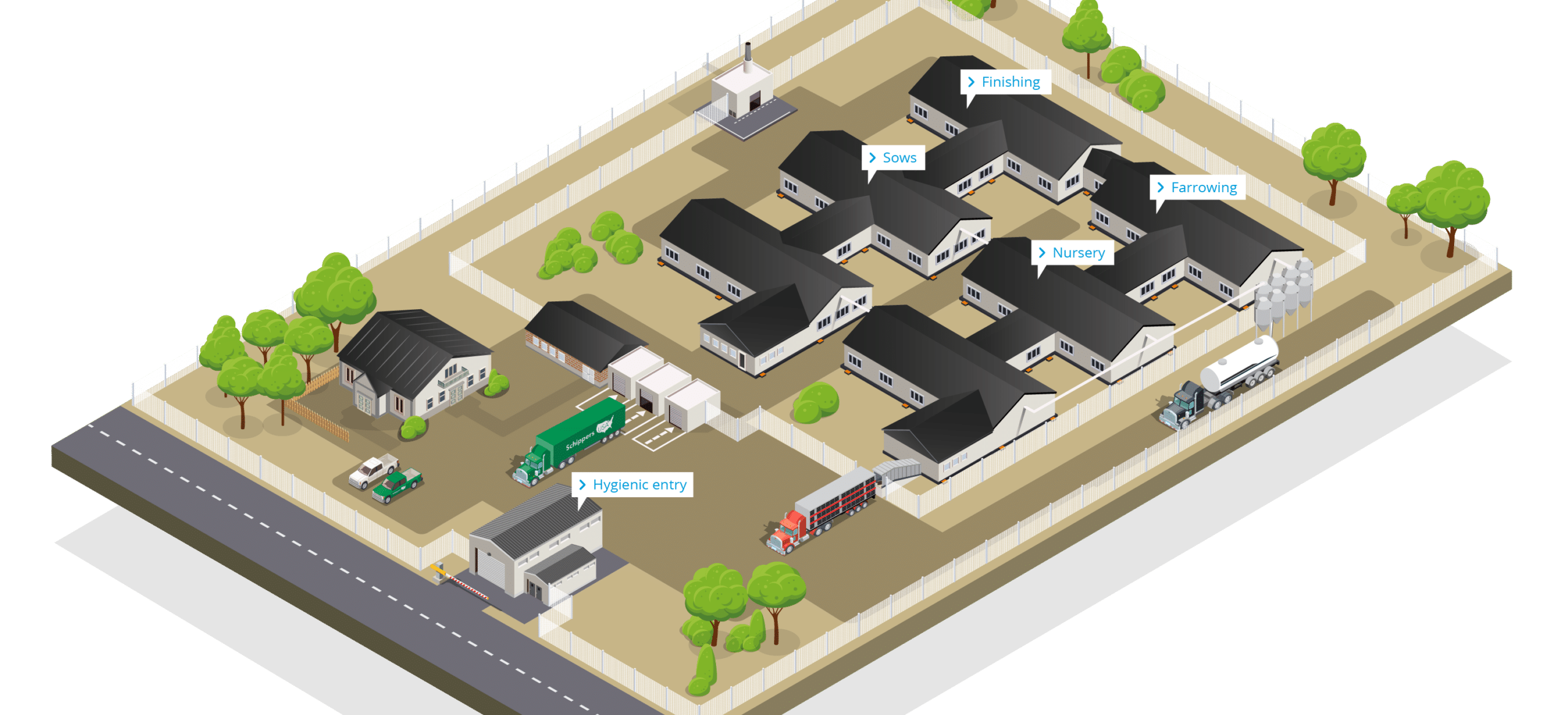
Sows
Improve the success rate of sow insemination, create a healthy environment in the pregnancy area to maximize sow health and preventing cross-contamination before the transfer to the farrowing pen.
Finishing
The finishing phase is financially the most important. The herd consumes the most feed in this phase and animals stay in it for the longest period. Optimization and disease control significantly influence overall growth. Swine farm profitability and their efficiency highly depend on the performance in this phase.
Farrowing
Reducing pathogen pressure on newborn piglets in the early stages of their life significantly improves their performance during their entire life-cycle.
Nursery
Animals never get over a bad start, so it is critical to provide weaning piglets with healthy drinking water and an ideal germ-free growing environment to reach their full genetic potential.
Hygienic entry
External biosecurity measures are aimed at keeping the pathogens outside the farm.
Biosecurity programsfor pig farms
Finishing
What’s important during this life stage?
Ensuring optimal growth and health is paramount for finishers. It is key to prevent challenges that can impact their growth, productivity, and overall well-being.
- Clean living environment: Pigs are a product of their environment. Their health, growth and efficiency depend on their care and environment within the barn.
- Improving feed efficiency: The grow-finish phase accounts for two-thirds of total feed costs. Improving feed efficiency as the pig grows results in better nutrient digestibility, less feed waste and increased profitability for the producer.
- Increase feed and water intake: Uninterrupted access to quality feed and water is essential for reducing stress and maintaining growth performance.
In short, providing clean water for hydration and digestion, maintaining feed quality and hygiene, and adhering to a consistent feeding schedule are essential for efficient growth.
Common challenges
- Respiratory diseases: Viral and bacterial diseases that cause coughing, sneezing, difficulty breathing; resulting in reduced feed intake, and poor growth rates.
- Heat stress: Particularly in hot and humid environments, leads to reduced appetite, decreased growth rates, and increased water consumption.
- Gastrointestinal disorders: Digestive issues such as diarrhoea, enteritis, and gastric ulcers are caused by poor feed quality, sudden diet changes, bacterial or viral infections, and stress resulting in reduced appetite, nutrient malabsorption, weight loss, and increased mortality.
- Skin Lesions and infections: Abrasions, sores, and infections are common in overcrowded or unsanitary environments. Skin lesions can lead to reduced feed intake and increased susceptibility to infections.
- Metabolic disorders: Obesity and metabolic syndromes can arise due to excessive feed intake, imbalanced diets, lack of exercise, or genetic predisposition and lead to reduced feed efficiency, decreased growth rates, and increased risk of other health complications.
HyCare biosecurity programs at finishing
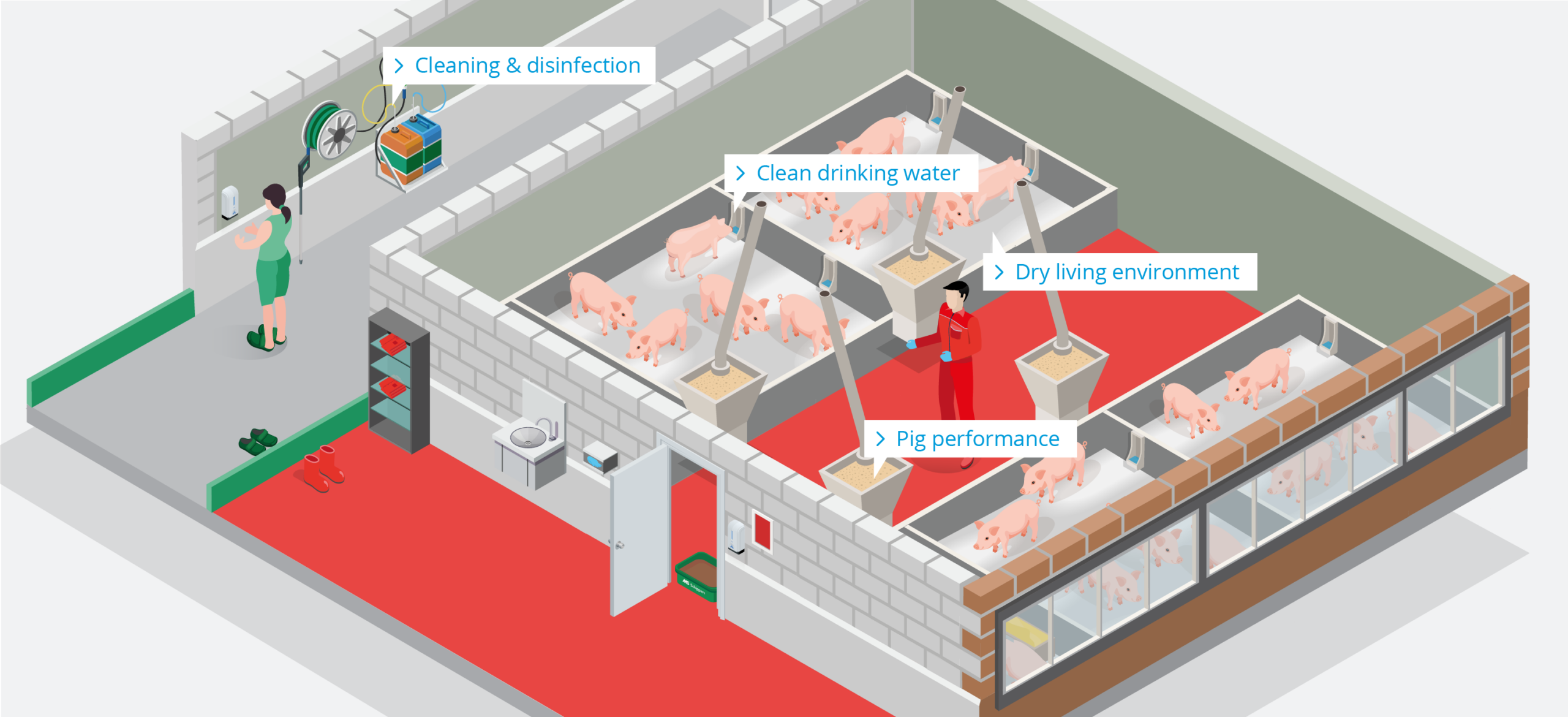
Cleaning and disinfection
Cleaning and disinfection in the living environment for finishers is critical for disease prevention, growth, and overall farm profitability. Regular cleaning practices, combined with appropriate management strategies, play a significant role in ensuring a successful biosecurity program.
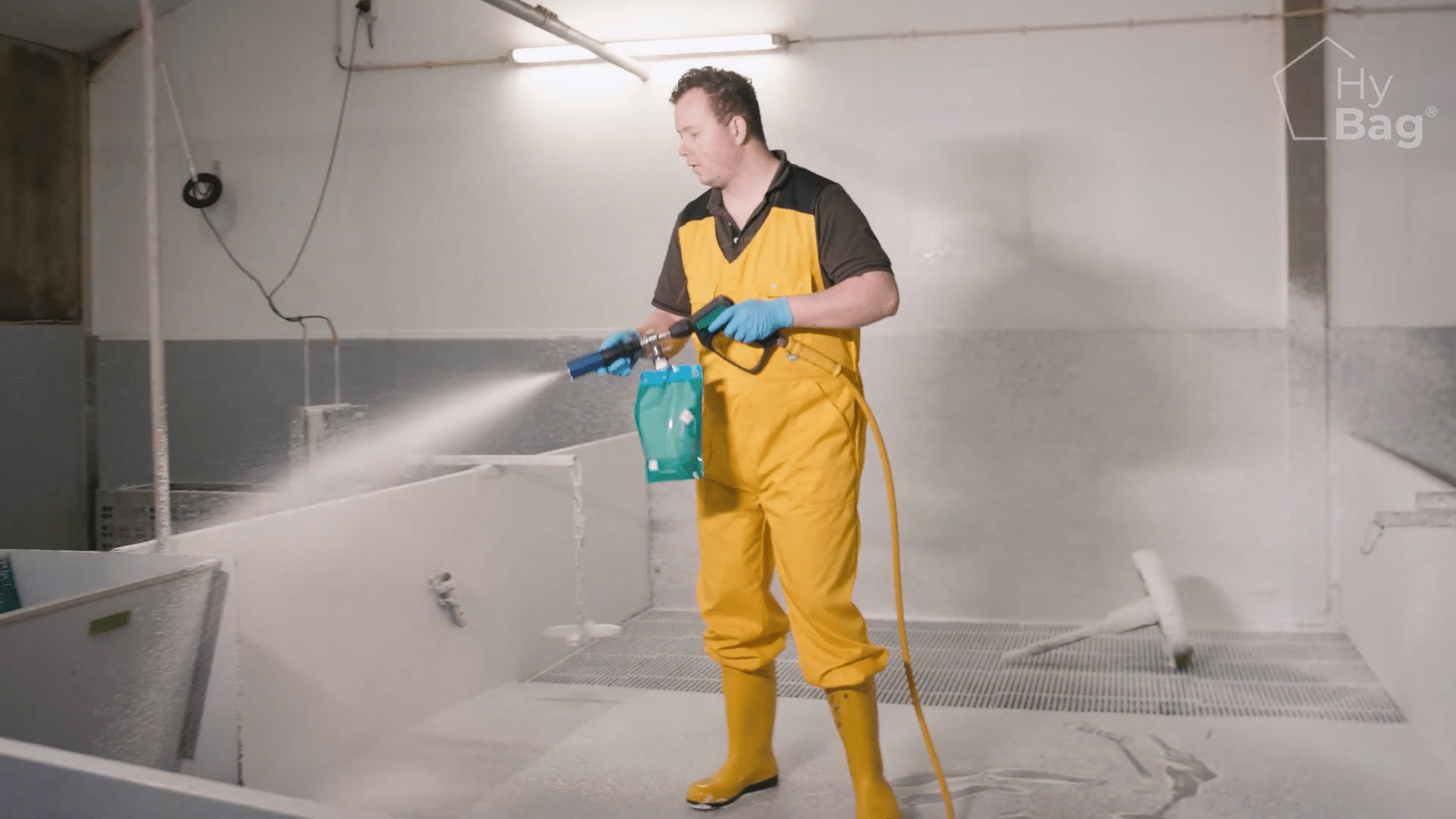
Dry living environment
A dry living environment for finishers is essential for promoting pig health, growth, and overall well-being. It helps prevent diseases, reduces stress, and ensures optimal conditions for efficient weight gain. By maintaining proper hygiene and providing a dry and comfortable environment, pig farmers can support the health of their animals.
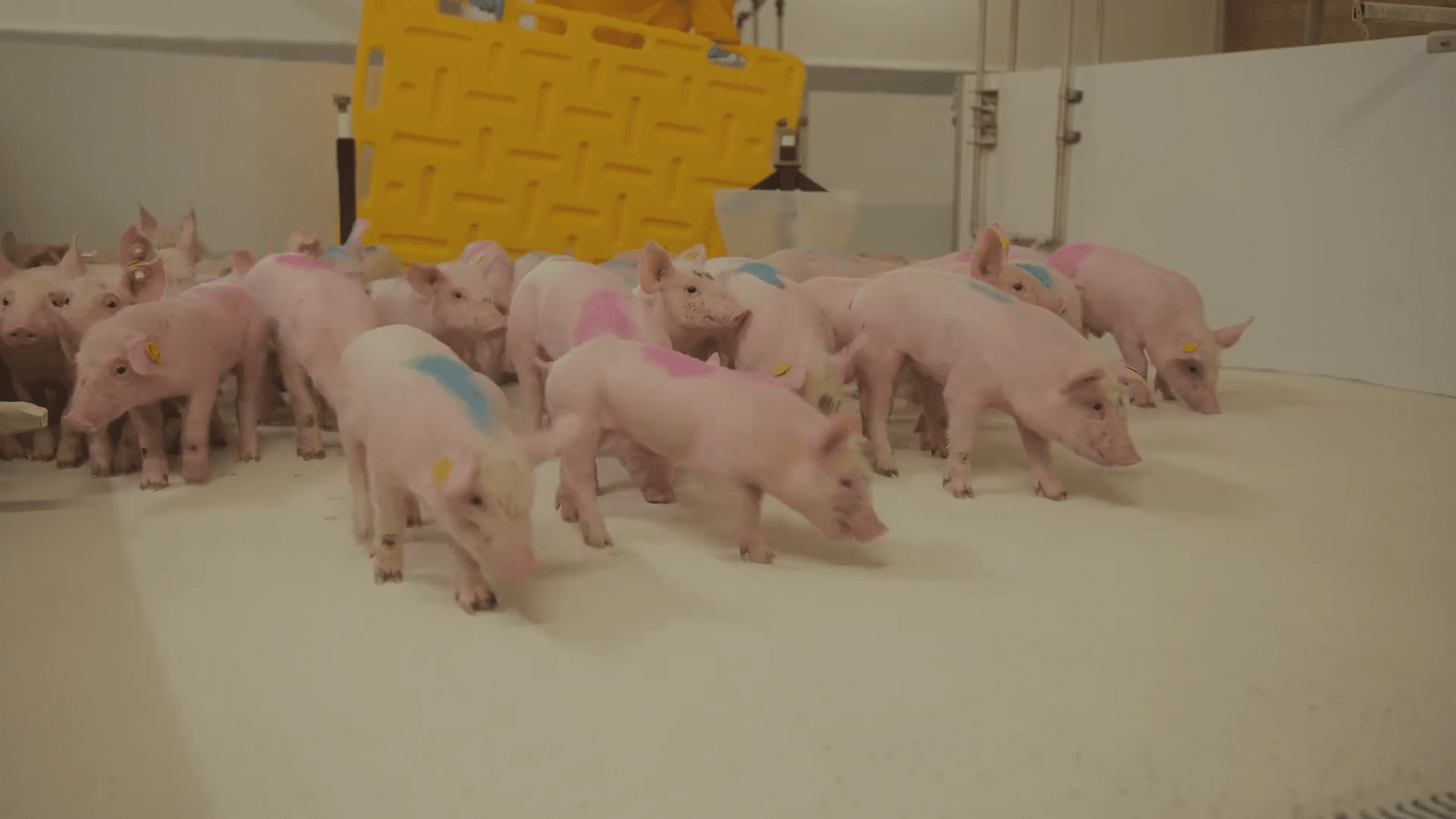
Clean drinking water
Clean drinking water is essential for promoting pig health, feed conversion, growth, and overall performance during the fattening stage. It supports hydration, nutrient absorption, waste elimination, temperature regulation, and disease prevention. Regularly monitoring and maintaining water quality is a fundamental aspect of responsible pig farming that contributes to the operation’s success.
The HyCare clean drinking water program ensures the availability of healthy drinking water at all times.
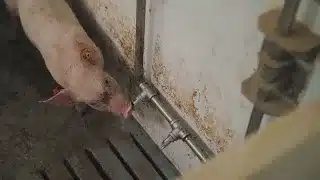
Pig performance
Ensuring good gut health during the fattening stage is essential for maximizing growth performance, immune function, feed efficiency, and overall pig well-being. A balanced and healthy gut reduces stress, enhances disease resistance, and improves economic and environmental sustainability in pig farming operations.
Cleaning and disinfection in the living environment for finishers is critical for disease prevention, growth, and overall farm profitability. Regular cleaning practices, combined with appropriate management strategies, play a significant role in ensuring a successful biosecurity program.

A dry living environment for finishers is essential for promoting pig health, growth, and overall well-being. It helps prevent diseases, reduces stress, and ensures optimal conditions for efficient weight gain. By maintaining proper hygiene and providing a dry and comfortable environment, pig farmers can support the health of their animals.

Clean drinking water is essential for promoting pig health, feed conversion, growth, and overall performance during the fattening stage. It supports hydration, nutrient absorption, waste elimination, temperature regulation, and disease prevention. Regularly monitoring and maintaining water quality is a fundamental aspect of responsible pig farming that contributes to the operation’s success.
The HyCare clean drinking water program ensures the availability of healthy drinking water at all times.

Ensuring good gut health during the fattening stage is essential for maximizing growth performance, immune function, feed efficiency, and overall pig well-being. A balanced and healthy gut reduces stress, enhances disease resistance, and improves economic and environmental sustainability in pig farming operations.

